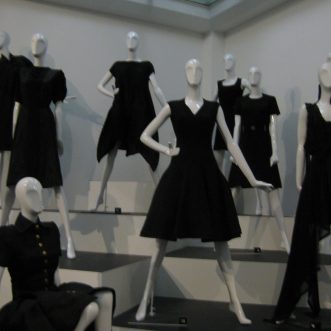
What makes a good Process? Simplicity.
A good process is as simple as it can be, but no simpler.
And like Chanel’s classic ‘little black dress’, it’s harder to achieve than it looks.

A good process is as simple as it can be, but no simpler.
And like Chanel’s classic ‘little black dress’, it’s harder to achieve than it looks.
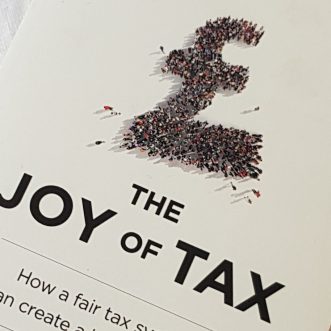
When things flow, it is sometimes possible to be wrong about their direction. Like when you’re sitting on a train at a station, and you think it’s started moving when it’s not, because the train next to you has started moving the opposite way.
When you’re operating within a system of systems, as we all are, all of the time, it is sometimes possible to misinterpret a symptom as a cause or a cause as a symptom.
It helps to take a step away every now and then and look for the bigger picture, to try and see how things might work differently, rather than trusting your assumptions.
Writers of all kinds can help us do this. Their assumptions may be wrong too of course, but at least they help us become aware that we’re making them. Sometimes, they even help us change them.
I thoroughly recommend reading The Joy of Tax, by Richard Murphy. Even if you don’t agree about the joy.
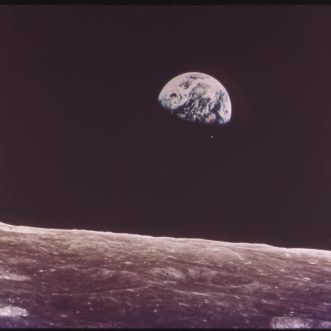
James Lovelock is 100 years old today.
Dr Lovelock is best known for his ‘Gaia hypothesis’ – the idea that living things interact with their non-living environment to create a synergistic, self-regulating, complex system that helps to maintain and perpetuate the conditions for life.
The hypothesis has come in for a lot of criticism over the years (after all, it is a hypothesis, not a theory), but the idea of the Earth as a system seems obvious to us now.
This wasn’t the case when Lovelock developed his idea, while working at NASA in the 60’s. And for me, this is the core of his contribution – he gave scientists a new paradigm for thinking about the Earth and our relationship to it, that enabled them to improve our understanding of how it works, and how it might evolve.
That’s quite an achievement.
Happy Birthday Dr Lovelock!

I’ve been researching the history and theory of accounting, and I have to say I’m finding it fascinating, not least because it leads off into some very interesting side-alleys.
Along the way I found the Digital Commons Network, an excellent resource.
But the best thing is finding that I’m not wrong about some of the questions I want to ask.
What questions would you ask of Accounting?

People are asking big questions about accountancy.
Both from a technology perspective, as in this paper from Deloitte, and from a more existential perspective, exemplified by Professor Richard Murphy and the Corporate Accountability Network.
Big changes create great opportunities to re-think our models of the world as consumers and as producers.
Where do you think accountancy should go? What should accountants do? For whom? What do we want from accountants? Most importantly, what could we want? What should we want?
Big questions, now is a good time to ask them.
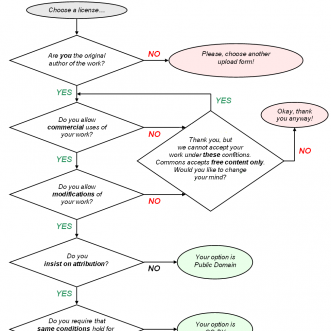
One of the easiest ways to overcomplicate a process that is designed to be run by humans is to spell out every possible decision.
That’s not to say decision trees like the one above aren’t useful in helping people to think through options or scenarios, they are. But often it’s impossible to pre-identify every possible scenario – especially where other living things are involved – and the attempt to include everything we can imagine in a process simply slows down its execution.
For the most part, simple, black & white, truly binary decisions can be automated.
For everything else we want people to think before they act. In which case the best instruction starts with “Use your judgement and experience, together with your knowledge of our purpose and values”.
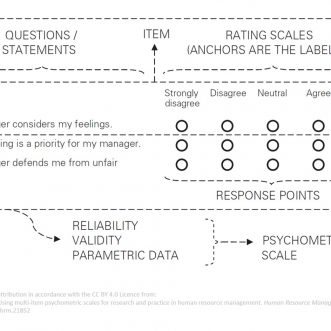
Humans are very good at taking ideas or feelings that are abstract, implicit, unexpressed, and possibly inexpressible, and giving them a concrete form, so that we can reason about them as if they have a real physical presence.
We do it all the time, with maps; forms; questionnaires, diagrams; musical scores; plans; and especially software. Those familiar icons on your phone or laptop screen are reifications of the idea of a dustbin, or a filing system, just as the original dustbin was a reification of the idea of ‘a place to collect rubbish’.
This is OK when we know that we are doing it. When we look at a map, we know it isn’t the territory. But when we give the map a voice that tells us where to go next, we forget that it is a map, and treat it as if it is real – more real than the territory.
But the most dangerous thing about this aspect of reification is that some ideas and feelings are possibly inexpressible, which means that in order to capture them, we must simplify them, reduce them, lose nuance – lose meaning.
We’ve all filled in questionnaires, for serious purposes or for fun, where some of the answers don’t really fit with our experience. But we have to choose one, so we go with an answer that is the nearest, or which captures one aspect of it. By the time everyone does that, the people who formulated the questionnaire have created a model of the group of questionnaire answerers that in fact does not capture the reality at all.
That’s fine if it was just for fun, but what if that model is then used to build the ‘systems’ (not necessarily software) and institutions that surround us? It becomes the reality, and woe betide you if you don’t quite fit.
So, it’s important to be aware that the map is not the territory. The way we model the world around us is not the world, and other models are available – even if we haven’t dreamed them up yet.
And, I think, its important to leave inexpressible things unexpressed. Some parts of the score should be left to the imagination of the musician. They’re usually the most memorable parts of each performance.

Here’s a scary thought. When their satnav says there is a road, but all they can see is water, drivers will believe the satnav, rather than their own eyes, and end up having to be rescued.
Luckily, most of the time the results of such satnav errors are not drastic – they simply start the conversation after a late arrival – “You won’t believe where the satnav took us!”
But the phenomenon behind these stories – automation bias or “learned carelessness” – is a serious problem. Confronted with a ‘black box’, whose workings we don’t understand, and which seems on the whole to be reliable, we humans switch off, stop monitoring, and stop thinking. “Computer says no.”
There are ways to prevent this.
You can de-mystify the ‘black box’, so people understand that it is part of a system designed and built by humans to achieve certain ends; you can frame the information provided by the system as support or advice rather than instruction, and you can engage the human brain by making the human do some of the work – especially where there are other humans involved.
Automation is great, but I want the best of both worlds.
Thanks to James Bridle for sparking this one.

Why do I need good people if I have process?
No process can be designed to deal with every possible scenario, exception or eventuality.
Without good people a process-based business gradually fossilises and becomes irrelevant, or worse, gets completely out of step with its environment.
Good people can handle exceptions appropriately when they occur. They can also identify when those exceptions are due to environmental changes that need to be dealt with by adjusting the process.
Good people spark off constraints (such as a process), they ad-lib, improvise, invent workarounds, dream up ridiculous scenarios that open up new opportunities.
With a solid framework to play in, good people bring a business to life – they make it human.
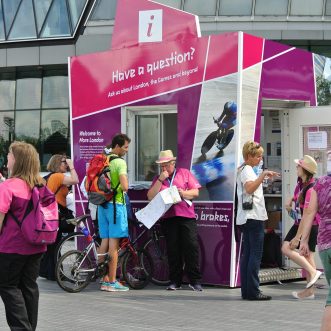
Why do I need process if I have good people?
Having a process to follow while they learn, gives people confidence that they are doing the right thing.
Once people are confident that they know what they are doing, they don’t wait to be made accountable – they take responsibility.
With the confidence of a process behind them, your good people can pretty much manage themselves.